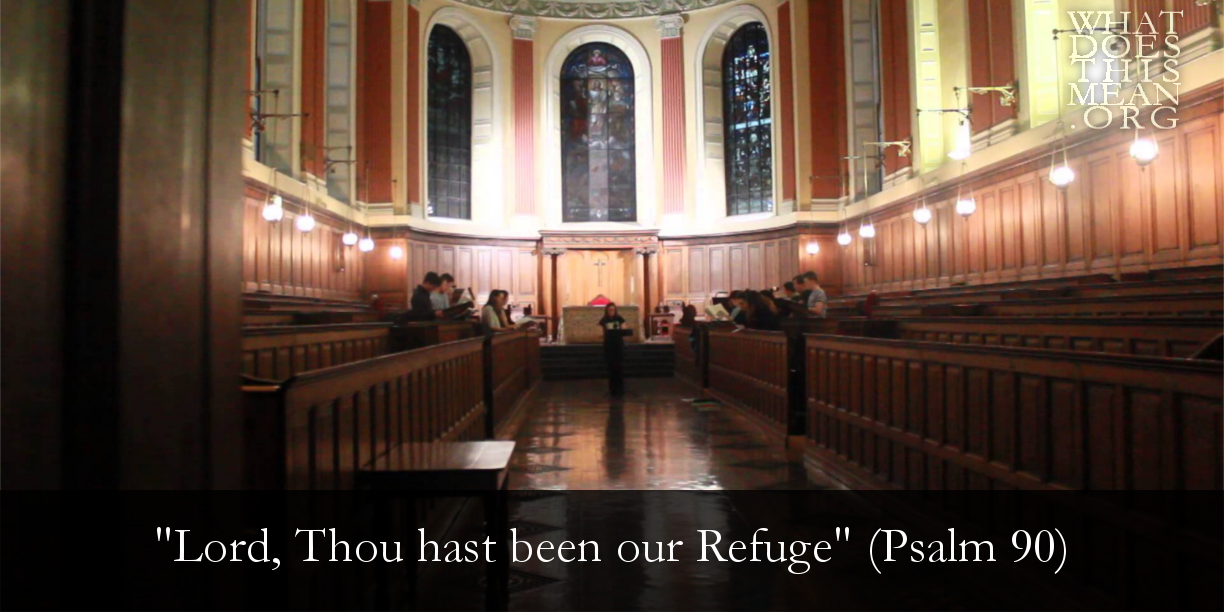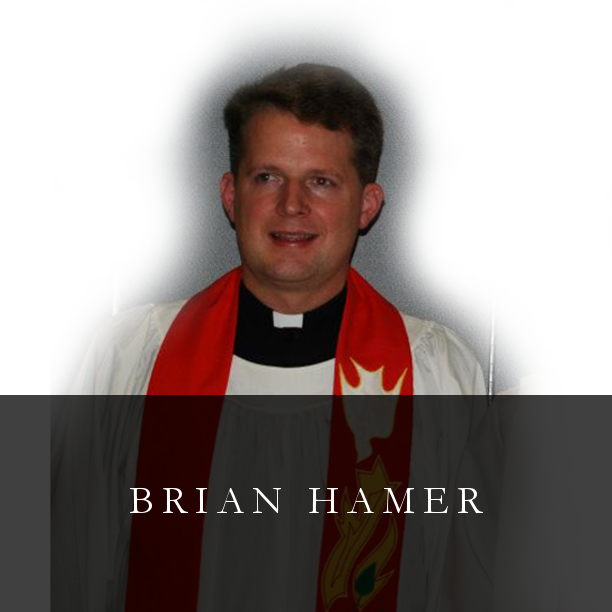| The 90th Psalm is a psalm of instruction in which Moses teaches the origin of death, namely sin, which, though known only by God and hidden from the world, is yet inborn in all from Adam to us. It shows that life here is not only short but also miserable, so that it may well be called a daily death. Nevertheless, the Psalmist says that such a life is good, so that through it we would be driven to see God’s grace and His help to deliver us from it all. . . . The psalm ends with the prayer that God would show us His work, namely His deliverance from sin and death, that is, that He would send Christ. (Reading the Psalms with Luther, p. 215). |
In addition to Psalm 90, the composer integrates the first stanza of Isaac Watts’ (1674–1748) hymn after Psalm 90:
| Our God, our Help in ages past, our Hope for years to come, our Shelter from the stormy blast, and our eternal Home. |
| Lord, Thou hast been our refuge from one generation to another, before the mountains were brought forth or ever the earth and the world were made. Thou art God from everlasting and world without end. Thou turnest man to destruction; again Thou sayest Come again ye children of men. For a thousand years in Thy sight are but as yesterday, seeing that is past as a watch in the night. |
| O God our help in ages past, our hope for years to come. Our shelter from the stormy blast, and our eternal home. |
| As soon as Thou scatterest them They are even as asleep and fade away suddenly like the grass. In the morning it is green and groweth up, but in the evening it is cut down, dried up and withered. For we consume away in Thy displeasure and are afraid at Thy wrathful indignation. For when Thou art angry all our days are gone; we bring our years to an end as a tale that is told. The years of our age are three score years and ten, and though men be so strong that they come to fourscore years, yet is their strength but labour and sorrow. So passeth it away and we are gone. Turn Thee again, O Lord, at the last. Be gracious unto Thy servants. O satisfy us with Thy mercy and that soon. So shall we rejoice and be glad all the days of our life. Lord, Thou hast been our refuge from one generation to another, before the mountains were brought forth or ever the earth and the world were made. Thou art God from everlasting and world without end. And the glorious Majesty of the Lord be upon us. Prosper Thou, O prosper Thou the work of our hands. O prosper Thou our handywork. — translation from Book of Common Prayer (1662) |
As you watched and listened to this video, you probably noticed that the work requires two well-rehearsed choirs, a professional organist, an intermediate trumpet player, and significant rehearsal time, leaving it out of reach for many volunteer parish choirs. One viable option is to schedule this work in a context where you have access to the full resources of several parishes, such as church anniversary services (often held in the afternoon), or possibly for conventions, hymn festivals, and other large gatherings. The repetition of verses 1–2 as an Antiphon make it especially fitting for anniversaries (congregation, circuit, district, synod, etc.), perhaps complimented by a sermon on verses 1, 2, 16, and 17.
There is another fitting context for this hymn anthem, however, that must not be overlooked. The theology of living and dying in God’s good time (“So teach us to number our days that we may get a heart of wisdom” [v. 12]) explains why Psalm 90 is fitting for funerals and memorial services. In a day when the unbelievers are numbering their days as their own gods (a couple in Canada, for instance, had a family night out, including dinner and dancing, before retiring to their home for a couples’ assisted suicide!), the words of Johann Gerhard (1582–1637) ring true:
| Indeed, he who prepares himself for a happy death by a true and serious conversion, labors after sincere godliness, patiently endures adversity, and with heart-felt feeling burns with an ardent desire for eternal life. Moses prays, “Teach us, O Lord, to number our days that we may apply our hearts to wisdom” (Ps. 90:2). (Handbook of Consolations for the Fears and Trials That Oppress Us in the Struggle with Death, p. 3). |



 RSS Feed
RSS Feed
